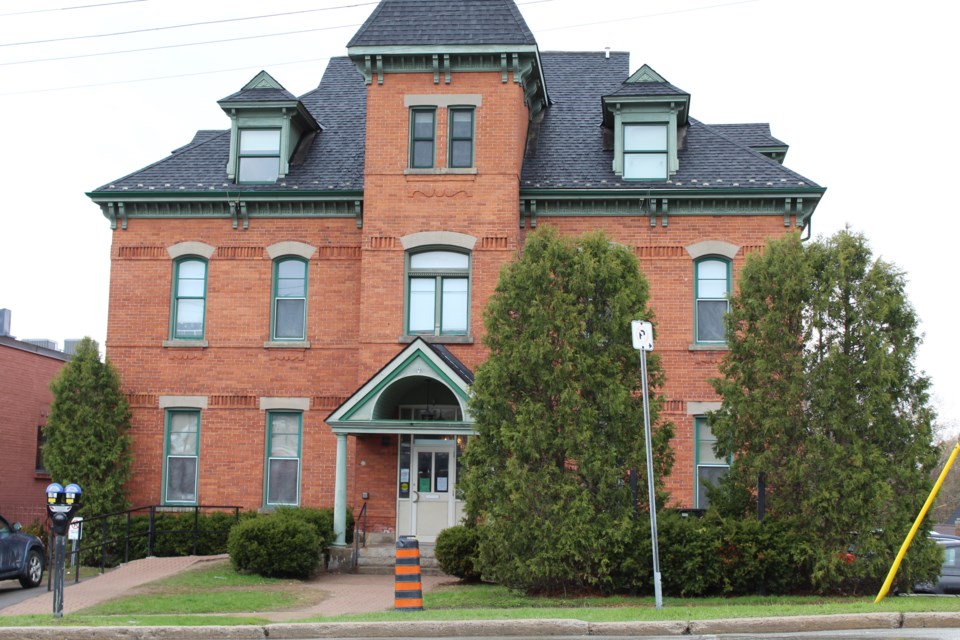The public-health agencies behind an application for a supervised consumption site (SCS) in Barrie looked at several other locations before arriving at 90 Mulcaster as their preferred location, one which has rankled the neighbourhood.
BarrieToday has obtained a copy of the list of locations investigated as possible sites for an SCS, which would provide a safe and clean space for people to use their own drugs under the care of nursing staff.
For the last few months, the Canadian Mental Health Association (CMHA), the Gilbert Centre and the Simcoe Muskoka District Health Unit have been working on a provincial application for what the Ford government calls a Consumption and Treatment Services (CTS) facility.
Possible host sites for an SCS include:
* 13 Codrington St., which the SCS planning committee had initial indications was for sale, but it was not.
* 40 Clapperton St.
* 49 High St.
* 110 Dunlop St. W.
* 15 and 21 Bradford St. (CMHA properties)
* 80 Bradford St.
* 70 Wellington St. W. (RAAM clinic and withdrawal management service)
* 90 Mulcaster St. (CMHA property; selected as the preferred site).
For an upcoming council meeting, the downtown bus terminal will also be looked at, as requested by council this week.
"Additional sites may have been considered, but not appear on this list, as they were ruled out early on in the process as not meeting certain priority criteria or needs," the SCS planning committee told BarrieToday in a joint statement.
Some of the province's site criteria includes that the facility be close to where people use drugs; that it be on a bus route; that it be no less than 100 to 200 metres of sensitive land uses such as child-care facilities, parks and schools; and that it have wraparound services.
The local SCS planning committee says its needs include meeting appropriate zoning and building code requirements, landlord approval, property that is financially viable to purchase or lease, and adequatre physical space. If it is a lease, the committee says a "key barrier" could be a lack of access to funding to secure a site before their application being provincially approved.
According to the Ministry of Health and Long-Term Care, "only CTS applications that are approved for provincial funding may include costs for renting space in their CTS budget (if approved as a reasonable cost by the ministry), and CTS budgets can
only take effect following the approval of the CTS application.”
Last week at general committee, councillors gave initial approval for an SCS to operate at 90 Mulcaster, just up the street from city hall. Council's endorsement would mean the group could proceed with its application for a provincially funded CTS at the Mulcaster Street site, which is located next door to the David Busby Centre, a facility which helps the city's homeless.
However, following vocal opposition from residents at Monday's city council meeting against having an injection site at 90 Mulcaster, and the problems that already exist in the neighbourhood with the Busby Centre, city councillors had a change of heart and told SCS committee members to revisit some of the sites they had previously ruled out.
They've been told to come back to council June 24. Committee members say they will have more information to provide further detail on the potential sites, including how each one fits with their "priority criteria and needs."
"The site that best meets our priority criteria and needs is 90 Mulcaster," the committee says. "The recent clarification regarding proximity to Berczy Park does not prevent this site from being suitable for our application, as the SCS planning committee intends to address this issue through enhancing our mitigation strategies and anticipates – consistent with the research evidence – that the current open drug use and needle waste occurrence in this park will in fact be improved with a nearby SCS."
The initial site-selection process was conducted from February to April, within the borders of Wellington Street to Vespra/Simcoe and Mulcaster to Bradford.
"This area was decided based on where the highest drug use is located, as indicated by emergency department visits for the broader north-central area of Barrie, as well as indicators for this more specific geographic area including reports from outreach services, location of needle exchange sites and the volume of distribution of those sites," the committee says. "Sites that were available for purchase or rent within the desired area were compared to our priority criteria and our needs."
Early on in the site-selection process, the SCS planning committee says it considered a wider range of sites, primarily based on proximity to drug use. As the priority criteria and needs became clearer during that process, the committee says it limited any further search to sites that would meet most or all of the criteria and needs.
The CTS facility, if approved, would be open from 7 a.m. until 1 a.m. the following morning, seven days a week. Officials expect between 30 and 45 people using the site daily. It would have around 20 staff members, including three full-time and three part-time nurses. It would also have an estimated $1.5-million annual operating budget.
Data collected for the period of January to September 2018 now shows the city has the second worst problem among large municipalities. Previous data had placed Barrie third in the province.



